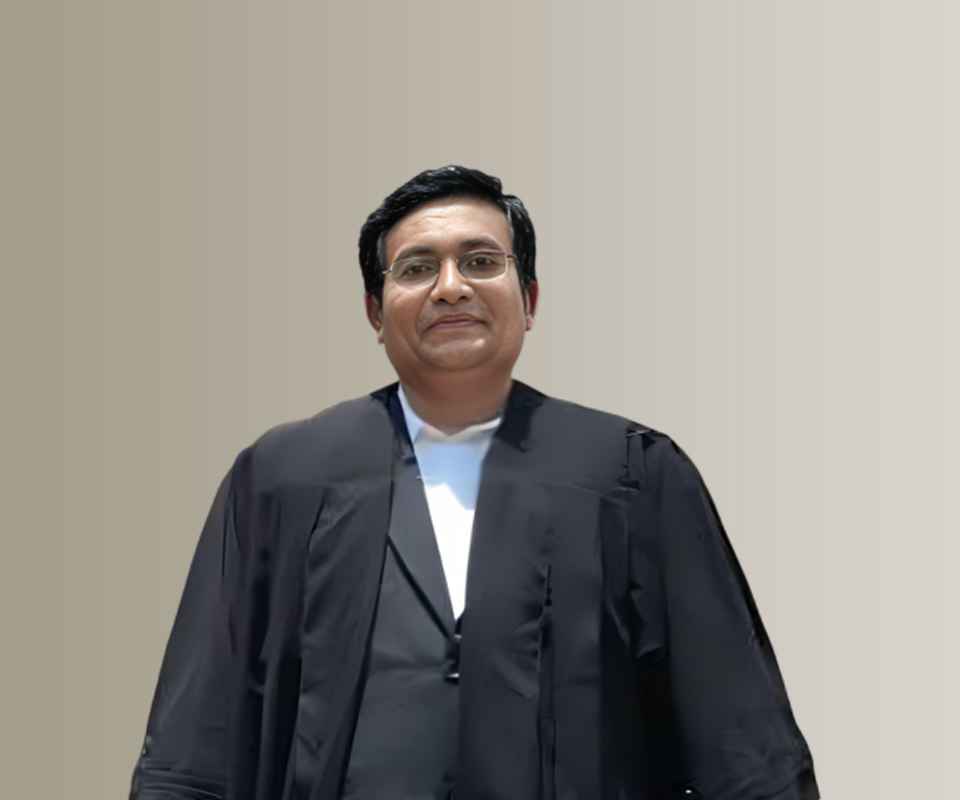The discharge of a debtor from its debt obligations after the completion of bankruptcy and insolvency proceedings depends on the specific outcome of the proceedings and the laws and regulations of the jurisdiction in which the insolvency process takes place. In general, there are two primary outcomes that determine whether a debtor is discharged from its debt obligations:
Resolution and Debt Repayment:
If a resolution plan is successfully approved and implemented during the insolvency process, the debtor company may continue its operations under new ownership or management, with a restructured financial arrangement. In this case, the debtor continues to exist, but its debts are typically restructured and repaid in accordance with the terms of the approved plan.
The resolution plan may involve partial repayment, equity transfer, or other arrangements that allow the debtor to continue its operations while ensuring that creditors receive some form of payment over time. After fulfilling its obligations under the plan, the debtor may no longer have outstanding debt obligations to those creditors whose claims were addressed in the plan.
Liquidation and Debt Discharge:
If the insolvency process leads to the liquidation of the debtor's assets, the debtor's business operations are typically discontinued, and its assets are sold to repay creditors. After the liquidation is complete, the debtor company ceases to exist.
In cases of liquidation, the debtor's debts may be discharged to the extent that the sale of assets generates proceeds that are sufficient to pay off the creditors' claims. However, it's important to note that not all creditors may receive full repayment, and unsecured creditors may receive only a fraction of their claims, if anything.
In some jurisdictions, certain types of debt may be discharged in full, while others may remain partially unpaid after liquidation.
Personal Bankruptcy:
In the case of an individual debtor filing for personal bankruptcy, the outcome can vary based on the type of bankruptcy, such as Chapter 7 or Chapter 13 in the United States. In Chapter 7 bankruptcy, for example, eligible debts are typically discharged, but non-dischargeable debts (such as certain taxes, student loans, and domestic support obligations) may not be discharged. Chapter 13 bankruptcy involves a debt repayment plan over several years.
It's crucial to understand that the specific discharge of debts and the legal implications vary widely depending on the jurisdiction's insolvency laws and the individual circumstances of the debtor. In some cases, certain types of debts may not be dischargeable, and the discharge process itself may have legal requirements and timelines. Additionally, creditors have the right to challenge discharge if they believe there are grounds for doing so, such as fraud or misrepresentation.
Debtors and creditors involved in insolvency proceedings should seek legal counsel to understand the implications of the specific proceedings and the discharge of debt obligations based on the applicable laws and regulations.
Answer By Anik
Dear client,
Indian legal system incorporated legislation distinctly dealing with insolvency and bankruptcy in 2016. Up until then, matters pertaining to insolvency and bankruptcy were largely covered in varying codifications laying down laws corresponding to the specified code’s requirement. For instance, inter alia, Companies Act, 2013, laid down provisions pertaining to winding up of companies, SARFAESI Act, 2002, provided for discharge of liability by the bank towards a secured creditor for their secured interest regarding the failure of payment[1] and Banks and Financial Institutions Act, 1993, presented rules for financial debt recovery.
In light of the losses sustained by the creditors, in consequence to the non-payment of debt in due course of time because of non-existence of a legally binding procedure, the parliament introduced the Insolvency and Bankruptcy Bill in 2015 which passed in 2016 (hereinafter referred to as “The Code” [2]). The losses borne by the creditors were by extension affecting the financial stability of the creditors as well as the economy [3].
The Indian Insolvency & Bankruptcy Code provides for legally binding and sustainable modus operandi for the insolvency process of corporates, partnerships and individuals. This guide deals specifically with the Corporate Insolvency Resolution Process (hereinafter referred to as “CIRP”). Section 6 under Chapter II of The Code defines CIRP as a process initiated by a financial creditor, operational debtor or the corporate debtor [4] itself when a payment by the corporate debtor has defaulted.
Corporate Insolvency Resolution Process
CIRP is fundamentally concluded in six stages, keeping variable factors constant. The stages are as follows:
Stage 1 – Petition to the NCLT: When a company defaults in furnishing payments to its creditors, as discussed above, the creditors hold a right to bring forward a CIRP petition before the Adjudicating Authority. Instances wherein a company is the corporate debtor, the appropriate Adjudicating Authority is the National Company Law Tribunal (hereinafter referred to as “NCLT”).
Once filed, the NCLT reviews the merits of the petition considering whether the petition holds a locus standi before the tribunal or not. If the tribunal does not find merits in the petition, like for instance, the defaulted amount does not meet the minimum threshold of INR One lakh as per Section 4 of The Code (which is now INR One Crore [5]), then it will reject the petition. However, if the tribunal finds practicable merits in the petition, then it admits the same (u/s 7, 9 or 10 of The Code) prompting the process to commence. The NCLT is required to call for a hearing within 14 days of the filing of the petition.
Stage 2 – Appointment of Interim Resolution Professional (hereinafter referred to as “IRP”): Resolution professional (hereinafter referred to as “RP”) [6], defined u/s 27 of The Code, is a licensed insolvency professional appointed and nominated by the Committee of Creditors. Until then, the NCLT appoints the IRP.
The second stage towards the process is for the IRP to enterprise between carrying out the remainder of the insolvency process and ensuring that the operations of the corporate debtor are a going concern.
Stage 3 – Moratorium: Moratorium period commences once the tribunal admits the petition. As per Section 14 of The Code, on declaration of this period, the tribunal prohibits;
Institution of fresh suits or continuation of pending suits (in terms of financial debt) against the corporate debtor;
Defenestration of the corporate debtor from any operational, financial, legal or managerial obligation;
Any additional foreclosure or recovery of debt against the corporate debtor under the SARFAESI Act, 2002; and
Recovery from the corporate debtor of any property that he possesses at the time of the insolvency process.
Moratorium period remains in subsistence till the time the CIRP process is concluded. The upper limit of continuance of this period is 180 days with a possible extension of 90 days under exceptional circumstances.
Stage 4 – Collation and analysis of facts: The IRP is responsible for categorizing the claims made in the petition by the petitioner systematically, and making an analysis of the same as per Section 18 (b) of The Code. In case the IRP requires an exposition of a claim made by the petitioner, then The Code authorizes the IRP to call a meeting with the petitioner concerning the same for the clarification required.
The IRP is also required to constitute a Committee of Creditors (COC) by the virtue of Section 18 (c) of The Code within 30 days of the commencement of the CIRP. Once the COC is formed, the committee then appoints an RP. The IRP can potentially retain the position or a fresh appointment can be made depending on the decision of the committee.
Stage 5 – Resolution Plan: Once the IRP/RP collates and verifies the claims made by the petitioner, the same has to be followed by a public announcement by the COC. The announcement is indicative of the insolvency by declaring that the corporate debtor is undergoing an insolvency process and all interested candidates or bidders are invited to submit a resolution plan that could potentially be implemented. These bidders could be prospective investors, creditors etc.
Depending on the number of resolution plans proposed, the COC peruses the same. The plan that gathers an approval of over 75 per cent of the COC, is secured to be presented before the NCLT.
Stage 6 – Decision: The resolution plan approved upon by the COC is presented before the NCLT. If the NCLT sanctions the approved resolution plan, then the same is executed and becomes binding on the corporate debtor and all the stakeholders.
However, if the NCLT does not sanction the resolution plan or, the COC is unable to finalize a resolution plan in the designated period, then the tribunal orders the liquidation of the corporate debtor and the same has to be concluded within one year of such order.
The Code has been successful in stabilizing and providing a structure to the insolvency process in pursuance of the abovementioned steps. The non-existence of a system was a key lacuna in the implementation of insolvency before the legislation was brought into the light. At present, in the wake of enforcement of The Code, the insolvency process is streamlined and has an established timeline to conclude the progression.
Should you have any queries, please feel free to contact us!









